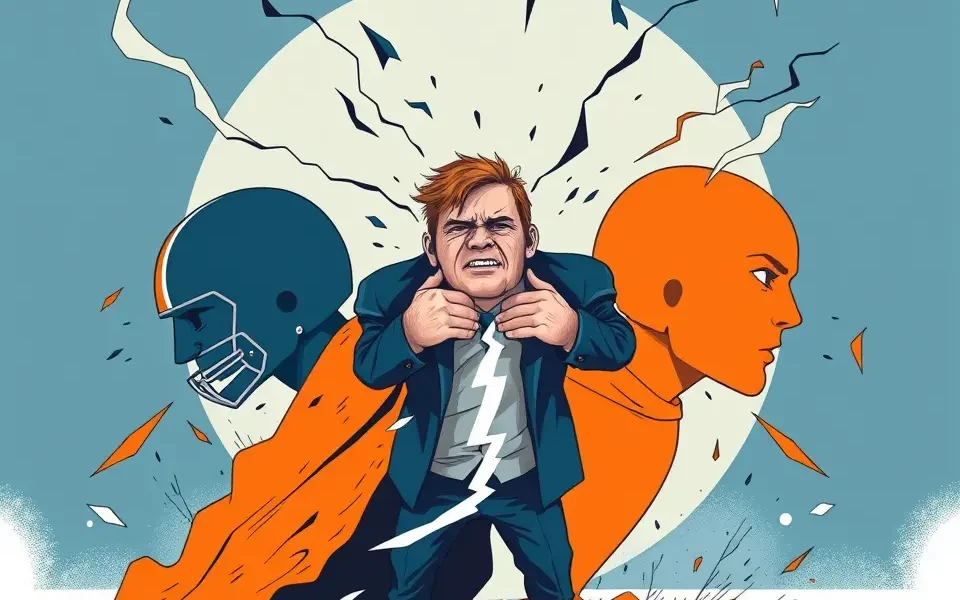The tennis world is currently witnessing a complex situation involving Novak Djokovic, the Professional Tennis Players Association (PTPA), which he co-founded, and a recent lawsuit filed by the PTPA against the sport’s governing bodies. While the PTPA aims to advocate for players’ rights and welfare, Djokovic’s seemingly ambivalent stance on the lawsuit has raised eyebrows and left some, including his ally Vasek Pospisil, “baffled.” This article delves into the details of the lawsuit, Djokovic’s position, and the reactions it has stirred within the tennis community.
The PTPA’s Legal Action: “Tennis Is Broken”
In March 2025, the PTPA initiated a series of legal actions against the ATP (Association of Tennis Professionals), WTA (Women’s Tennis Association), ITF (International Tennis Federation), and ITIA (International Tennis Integrity Agency) in the U.S., UK, and EU. The lawsuit alleges that these governing bodies have engaged in systemic abuse, anti-competitive practices, and a blatant disregard for player welfare.
The PTPA’s core arguments revolve around the following points:
- Anti-competitive practices: The lawsuit claims that the governing bodies collude to cap prize money, limit players’ ability to earn money off the court, and impose a “Ranking Points” system that restricts players’ participation in alternative events. They are, in essence, being accused of acting like a “cartel”.
- Unfair treatment of players: The PTPA argues that the current system forces players to adhere to an unsustainable schedule, jeopardizes their health and safety, and fails to provide adequate representation for player interests. The action targets the ATP and WTA Tour’s prize money formula, ranking systems and an “unsustainable” 11-month calendar that disregards player welfare.
- Lack of Transparency: The lawsuit also seeks more transparency in the anti-doping and anti-corruption investigative processes followed by the ITIA.
Ahmad Nassar, executive director of the PTPA, stated, “Tennis is broken… We have exhausted all options for reform through dialogue, and the governing bodies have left us no choice but to seek accountability through the courts. Fixing these systemic failures isn’t about disrupting tennis, it’s about saving it for the generations of players and fans to come.”
The PTPA’s legal action is backed by American billionaire Bill Ackman, who has publicly endorsed Donald Trump in the US presidential race.
Djokovic’s Distance: A Calculated Move?
Despite co-founding the PTPA in 2020 with Vasek Pospisil, Novak Djokovic’s name is not among the plaintiffs in the lawsuit. This, coupled with his comments expressing disagreement with certain aspects of the legal action, has created confusion and speculation.
At a press conference during the Miami Open in March 2025, Djokovic stated that while he agrees with some aspects of the lawsuit, he also disagrees with certain things and found some of the wording to be “quite strong.” He also emphasized that the PTPA has evolved into an organization with full-time employees and that he does not have a veto over its decisions.
Djokovic explained his decision not to sign the letter, stating, “In general, I felt like I don’t need to sign the letter because I want other players to step up. I’ve been very active in tennis politics.” He added that he believes his role is to encourage other players to take a stand and that he doesn’t want to make the lawsuit “about himself.”
However, this stance has been met with criticism and disbelief from some quarters. Some find it contradictory that the co-founder of the organization would distance himself from its core legal action.
Pospisil’s Surprise and Frustration
Vasek Pospisil, Djokovic’s partner in establishing the PTPA, has expressed his surprise and disappointment with Djokovic’s comments. In an interview, Pospisil stated that he “was surprised” by Djokovic’s stance, adding, “I don’t know why he said that…it was not in line with our previous conversations.”
Pospisil’s reaction highlights the apparent disconnect between the PTPA’s leadership and raises questions about the unity of the organization in pursuing its legal goals.
Reactions and Implications
Djokovic’s stance has triggered varied reactions across the tennis world:
- ATP and WTA: Both tours have dismissed the allegations as “without merit” and “baseless,” vowing to vigorously defend their positions.
- Boris Becker: The six-time Grand Slam champion criticized the PTPA’s approach and questioned the authority of its Executive Director, Ahmad Nassar.
- Other Players: Reactions from players have been mixed, with some expressing support for the PTPA’s cause while others remain skeptical or unsupportive. Carlos Alcaraz, for instance, publicly claimed that he doesn’t support the lawsuit, although he has been cited in it.
The lawsuit has the potential to significantly reshape the landscape of professional tennis. If the PTPA is successful, it could lead to:
- Increased player compensation: A more equitable distribution of revenue generated by the sport.
- A more sustainable schedule: A reduction in the demands on players’ bodies and a greater focus on player welfare.
- Greater player representation: A stronger voice for players in the decision-making processes of the sport’s governing bodies.
However, the lawsuit also faces significant challenges, including the opposition of the established governing bodies and the potential for internal divisions within the PTPA.
Djokovic’s History of Controversy
Djokovic’s involvement in the PTPA lawsuit is just one chapter in a long history of controversies that have marked his career. Some notable instances include:
- COVID-19 vaccination stance: His refusal to be vaccinated against COVID-19 led to his deportation from Australia in 2022 and prevented him from playing in several tournaments.
- US Open default: In 2020, he was defaulted from the US Open for hitting a ball that struck a line judge.
- Kosovo comments: At the 2023 French Open, he wrote “Kosovo is the heart of Serbia” on a camera lens, sparking controversy.
- Adria Tour: His attempt at a charitable tennis tour in 2020 backfired when it became a COVID-19 hotspot.
- Pseudoscientific beliefs: He has been criticized for expressing beliefs, such as the ability to purify polluted water with positive emotions.
These controversies have often overshadowed his on-court achievements and contributed to a divisive public perception. Some see something too calculating in the Djokovic make-up — an intense, brooding presence prone to affectation.
Conclusion: A Complex Game
Novak Djokovic’s stance on the PTPA lawsuit is a complex issue with no easy answers. While his motives remain unclear, his actions have undoubtedly added another layer of intrigue to an already contentious situation. Whether his distance is a calculated move to protect his image, a genuine disagreement with the lawsuit’s specifics, or a reflection of internal tensions within the PTPA, remains to be seen.
Ultimately, the success of the PTPA’s legal action will depend on its ability to present a compelling case in court and maintain unity among its members. As the legal battle unfolds, the tennis world will be watching closely to see whether this “courageous challenge to the status quo” will bring about meaningful change or further divide the sport.








No Comment! Be the first one.